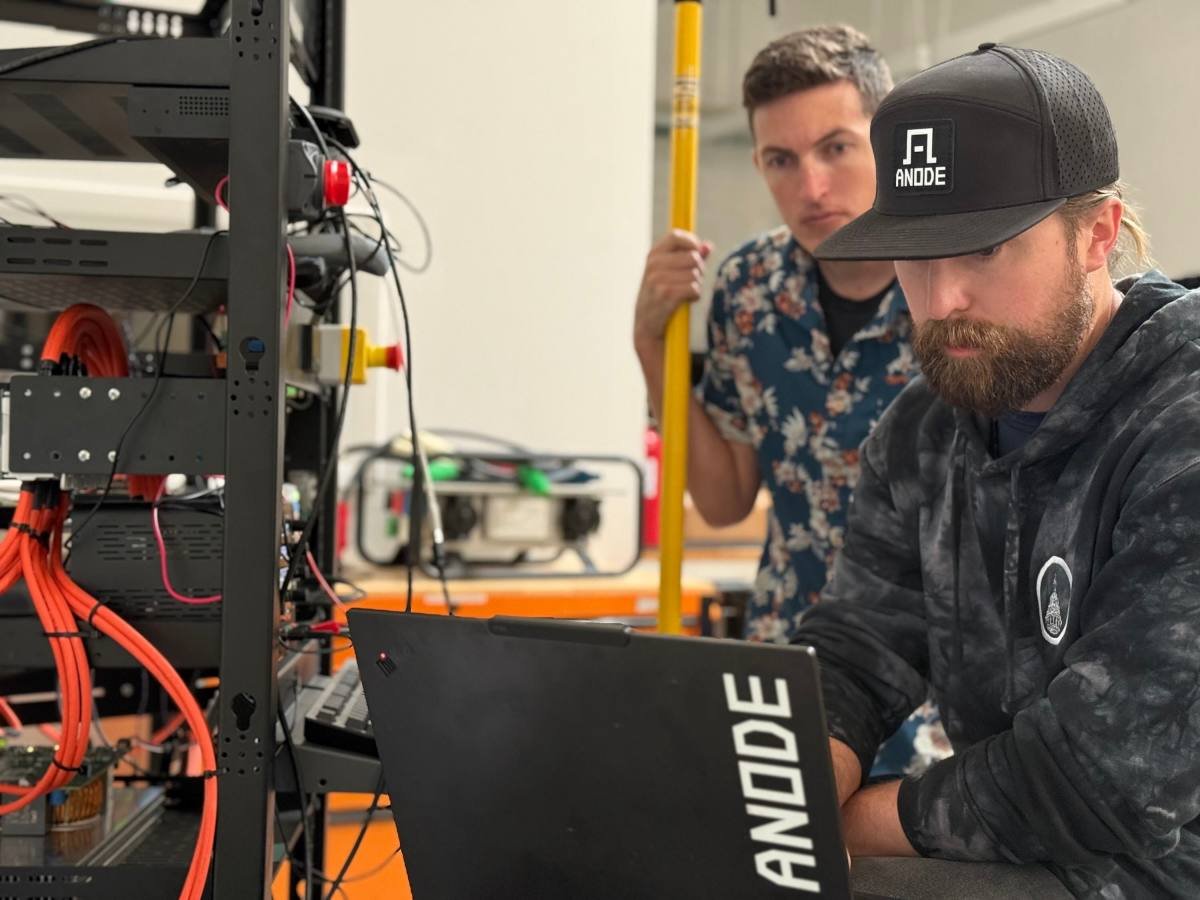Simply over a yr in the past, Moxion Energy closed its doorways, including its identify to a listing of high-profile bankruptcies that roiled the local weather tech world in 2024. The transportable battery startup had raised greater than $110 million in a bid to exchange diesel mills at festivals and development websites, however even that wasn’t sufficient to get it by the valley of demise. Moxion laid off greater than 400 staff and its assets were liquidated.
Now, the startup’s co-founder, Paul Huelskamp, and a number of other former Moxion staff are again with one other startup, Anode Technology Company, hoping to perform the identical objective — ideally with out repeating the identical errors.
“We began Anode with that objective to type of end what we began,” Huelskamp, now Anode’s CEO, instructed TechCrunch.
Anode has been working quietly, however it’s now rising with $9 million in seed funding. The spherical was led by Eclipse, and its associate Jiten Behl, who spearheaded the deal, was beforehand Rivian’s chief progress officer.
Behl’s curiosity within the area was sparked by his expertise at Rivian, which as soon as had an settlement to promote 100,000 electrical supply vans to Amazon. However the corporations quickly realized that the issue wasn’t the price of the vans, however the charging infrastructure.
“You want a mini energy plant to cost 150 vans, and that infrastructure doesn’t exist at depots,” Behl stated.
In a pinch, many fleets will flip to diesel mills. Waymo, for instance, was discovered to be utilizing them at its depot in San Francisco. “What companies are literally searching for is a few grid-independent options that may present them flexibility,” Behl added.
Techcrunch occasion
San Francisco
|
October 27-29, 2025
Different corporations, like SparkCharge and Energy Sonic, present EV charging utilizing cellular batteries, however Huelskamp claims Anode’s built-in {hardware} ought to set it aside. The corporate has designed an inverter that’ll work for the markets it’s focusing on, together with EV charging, development websites, and reside occasions.
Anode’s cellular battery can also be barely smaller than Moxion’s 600 kilowatt-hour unit, he stated, which makes it simpler to load onto flatbed vans.
“We’re optimizing for the bottom value of delivered vitality. The issues that drive value are, how a lot vitality are you able to placed on the again of a truck? What number of vans do you want? What number of drivers do you want? What number of journeys do you need to take?” Huelskamp stated. “A smaller footprint, much less vitality, may imply extra vitality on the again of a single flatbed truck. It’s a little bit counterintuitive.”
“There’s plenty of these sorts of necessities that, frankly, we simply didn’t respect at Moxion.”
The brand new startup will use contract producers to make its batteries, a key distinction from Moxion, which tried to do all of it in-house. “One of many principal classes realized is it’s actually powerful as a startup to tackle that a part of [the manufacturing],” Huelskamp stated.
For Behl, these classes served an element in drawing him to the funding. “I’m getting the profit, as an investor, to have these learnings already secured with out having to pay for that,” he stated.
Whereas EV charging depots is perhaps an rising market, development and reside occasions are extra established industries. At present, many lease fossil fuel-powered mills, that are expensive and never as environment friendly as a big energy plant. That inefficiency, Huelskamp thinks, offers Anode a gap. “We’re charging our batteries at three, 4, 5 cents per kilowatt hour, and the trade is used to paying a number of {dollars} per kilowatt hour,” he stated.
Huelskamp stated Anode will use AI to optimize its operations, together with charging and supply. Finally, that ought to drive down the price near parity with electrical energy from the grid, although not fairly as little as off-peak pricing, he stated.
“Over time, as we scale up our operations, create all these efficiencies, drive down the price of delivered vitality, and leverage the continued declines in battery prices, I feel it approaches the price of the ability that we get from the grid,” Huelskamp stated.
